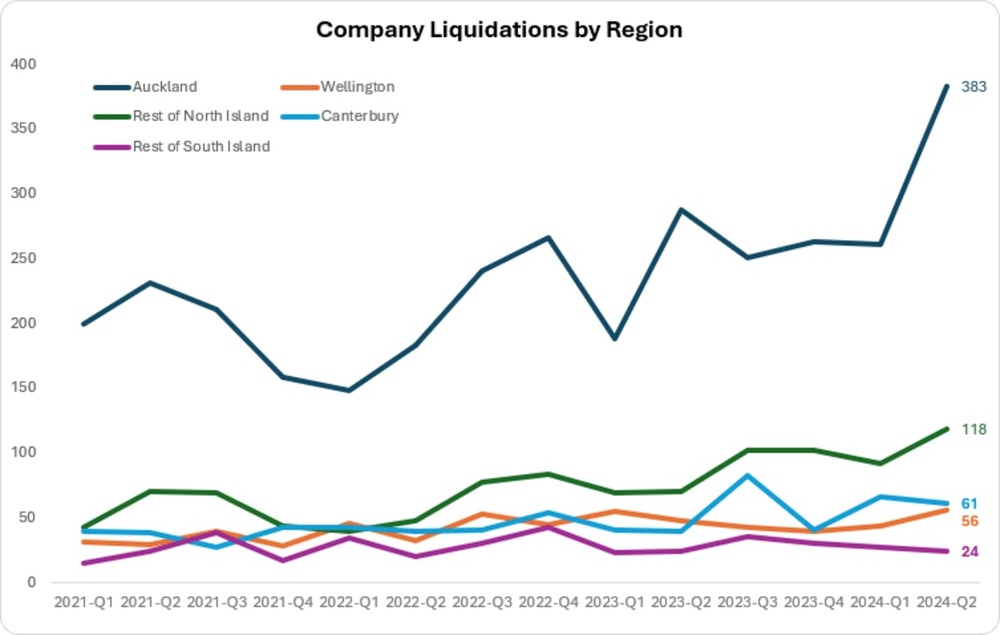Auckland Businesses Liquidate at Twice the Rate of Other Regions
RNZ
01 August 2024, 3:45 AM
 There were 383 business liquidation in Auckland in the second quarter of this year. (Photo: RNZ / Cole Eastham-Farrelly
There were 383 business liquidation in Auckland in the second quarter of this year. (Photo: RNZ / Cole Eastham-FarrellyAuckland businesses are bearing the brunt of the current downturn, new data suggests.
Centrix data shows the number of business liquidations is increasing in all regions, but most sharply in Auckland, where there were 383 in the second quarter of this year, compared to 56 in Wellington, 118 in the rest of the North Island, and 61 in Canterbury.
That equates to about 1.8 business closures per 1000 business in Auckland, well ahead of the rate of less than one per 1000 being recorded in Wellington.
Economist Shamubeel Eaqub said that rate was likely to get worse.
"This is an unusual recession, it's a profits recession. We've seen a decline in profits and we're still seeing a decline in demand so profits will fall further. We're likely to see more pressure in the coming months before it gets better."
Damien Grant, of Waterstone Insolvency, said it could be the case more businesses were failing in Auckland because the city was more dynamic than other parts of the country and had more start-ups.
Migrants who might be more likely to start a business also tended to settle in Auckland.
"Auckland is growing faster than other regions so we're going to see more businesses start in a faster developing area and as a consequence more fail."
Waterstone had seen an increase in the number of businesses failing, particularly construction, hospitality and anything that relied on disposable income, he said.
"But it's not an off-the-charts increase."
He said the rate of failures was not back to the level seen in 2010 or 2011.

Photo: Supplied
ASB chief economist Mike Jones said land and housing had higher values in Auckland so households and businesses tended to carry more debt.
The cashflow crunch experienced by many businesses and households was driven by higher interest rates, which would hit Auckland particularly hard.
"More households and borrowers are staring down the barrel of a bit of a jolt to the labour market - that is probably going to put some upward pressure on arrears and stress metrics from here," Jones said.
Businesses probably had another six months or so of what had been a "nasty downturn" before conditions plateaued, he said.
"Conditions are tough and people do expect things to get worse before they get better."
Centrix's latest data showed the number of liquidations overall was up 19 percent over the past 12 months.
Construction and property had been particularly affected.
"Looking at the property sector in particular, [the second quarter] saw the highest quarterly total of company liquidations - 93 - for over 10 years, with property company liquidations increasing by 28 percent within the last year. These figures indicate continuing weak consumer demand paired with a struggling New Zealand economy, which is hitting our businesses' bottom line hard."
Beyond the liquidation data, Centrix told media the number of non-liquidation company closures was 32 percent higher than a year earlier.

NEWS
TRADES & PROFESSIONAL SERVICES

